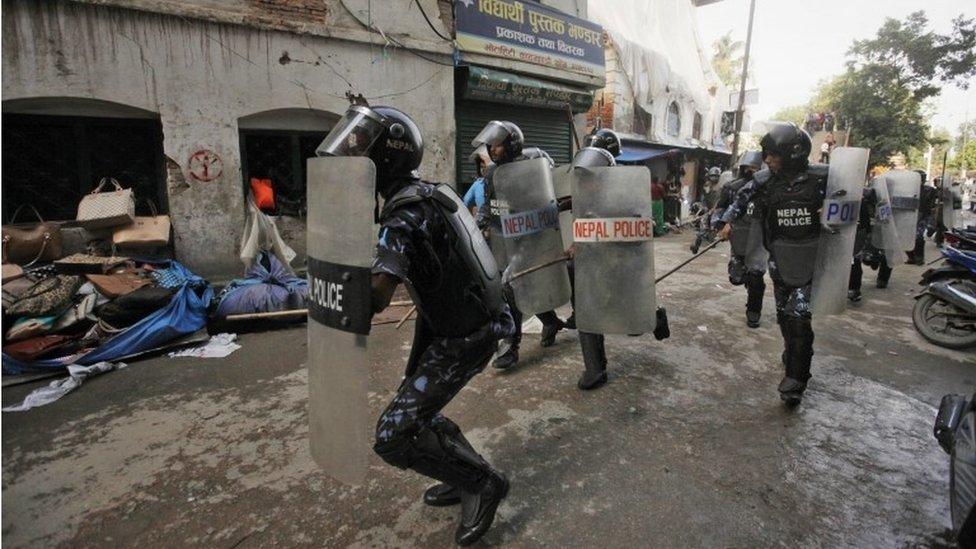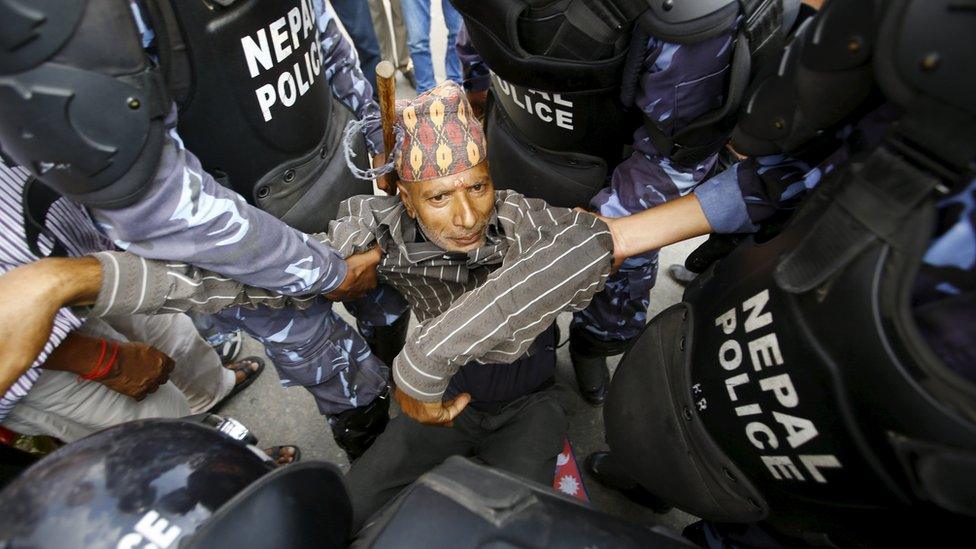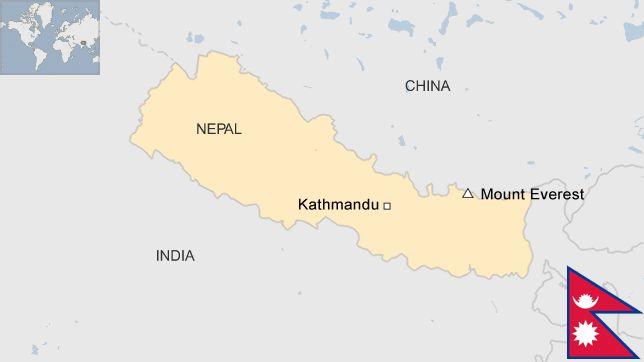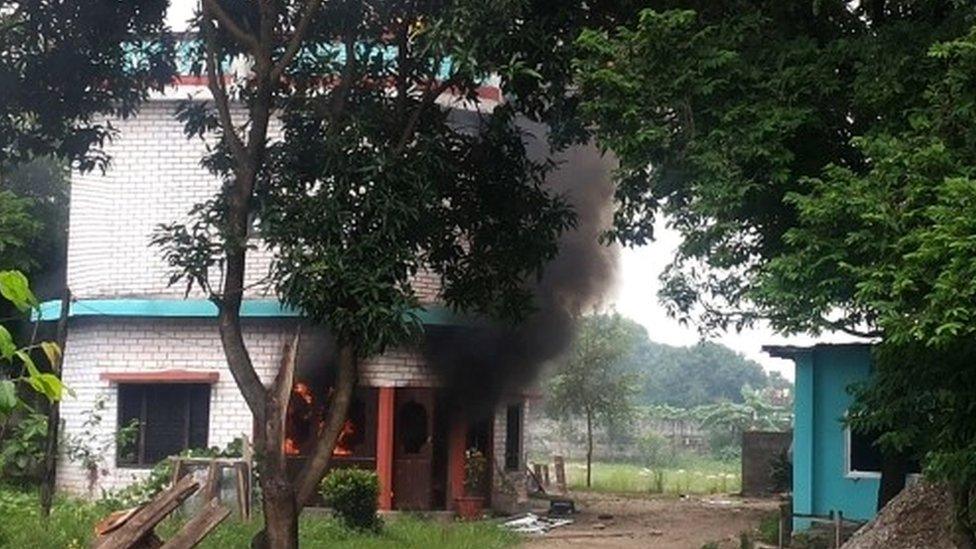India concern over Nepal violence following new constitution
- Published

More than 40 people have been killed in the violence
India has expressed its deep concern over growing violence in Nepal following its adoption of a new federal constitution.
More than 40 people have been killed following protests by groups from the low-lying plains adjoining India.
India has called its ambassador to Nepal back to Delhi for urgent talks.
The new constitution, adopted last week, defines the majority Hindu nation as a secular republic divided into seven federal provinces.
The document was unveiled after years of political wrangling.
The protests have been carried out by minority ethnic groups in the south in recent weeks.
They are concerned that changes to the borders and election rules will further marginalise them.
Women's groups and Hindu groups are also unhappy with the constitution.
Reports say at least three people were injured when police opened fire on an anti-constitution protest in the city of Biratnagar on Monday.
The BBC's Sanjoy Majumder reports India is concerned that the violence could spill over into its own territory.
In its statement Delhi said it had repeatedly cautioned Nepal's political leadership to take urgent steps to defuse tension in the country's southern plains, which adjoin India.
It added that it had consistently argued that all sections of Nepalese society must reach a political consensus and that their differences could not be resolved by force.
India's ambassador to Nepal, Ranjit Rae, also arrived in Delhi on Monday for day-long consultations, Indian foreign ministry officials told the Reuters news agency.
The strong reaction came after India failed to convince the Nepal government to delay adopting the constitution until it reached an agreement with those opposing it.
The people in the plains make up almost 40% of Nepal's population and they fear that new provincial boundaries will lead to them being marginalised.
- Published19 September 2015

- Published15 July 2024

- Published25 August 2015
